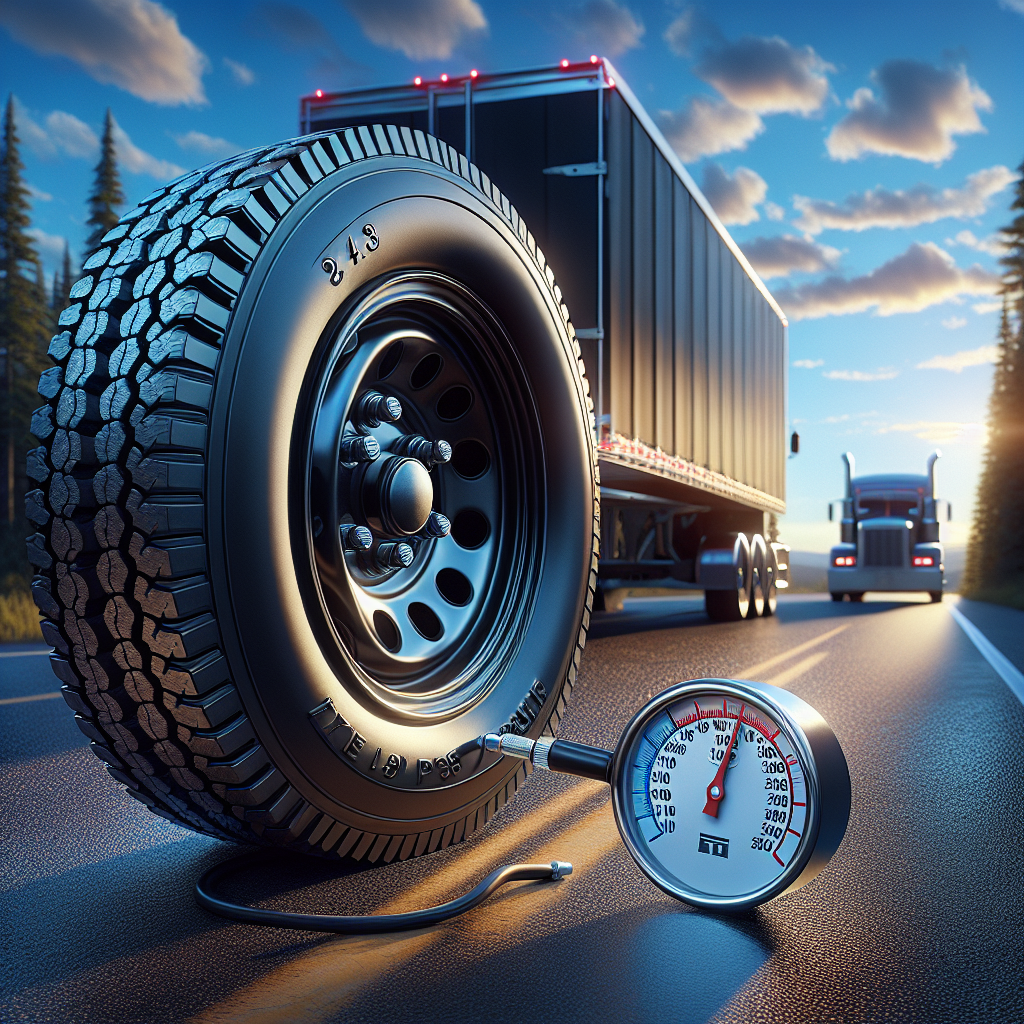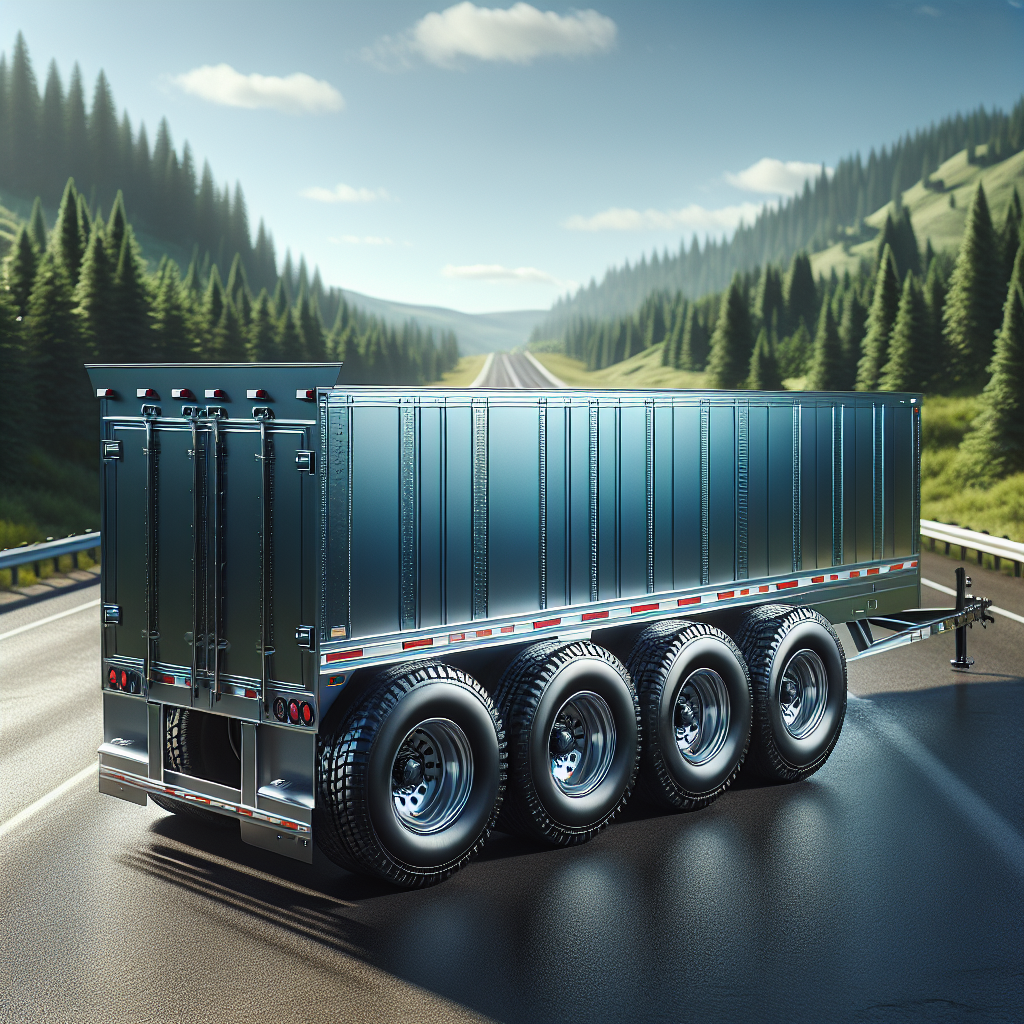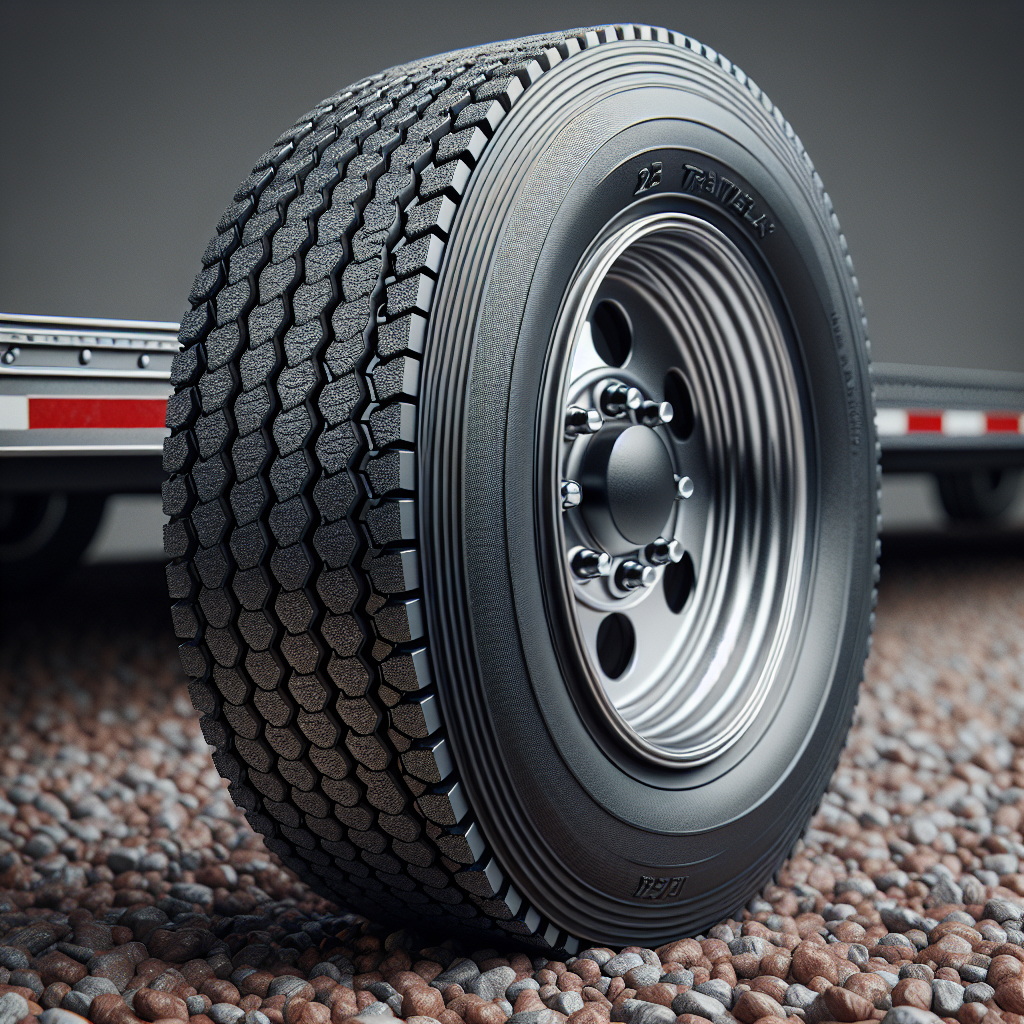

Maintaining the correct tire pressure on your trailer is vital for ensuring both safety and performance during towing. When you ask what should the tire pressure be on a trailer, it's not just about keeping tires inflated; it's about optimizing their functionality.
Proper tire pressure affects various aspects of trailer performance:
- Safety: Under-inflated tires can lead to blowouts, especially when carrying heavy loads. This increases the risk of accidents on the road.
- Fuel Efficiency: Correctly inflated tires reduce rolling resistance, which can improve fuel economy. This means you save money on gas over time.
- Tire Longevity: Maintaining the right pressure can extend the life of your tires. Over-inflated or under-inflated tires wear unevenly, leading to premature replacements.
Additionally, fluctuations in temperature can affect tire pressure, making it necessary to check it regularly. Ensure you refer to your trailer's owner's manual for the manufacturer-recommended tire pressure. This will help you understand exactly what should the tire pressure be on a trailer for optimal performance.
To enhance your safety and peace of mind while towing, consider integrating smart technology into your trailer. Tow with peace of mind, knowing that trailerwatchdog is standing guard. Visit trailerwatchdog.com for more information!
Recommended Tire Pressure for Different Trailer Types

Understanding the recommended tire pressure for different trailer types is essential for ensuring optimal performance and safety. Each type of trailer has unique requirements based on its design, load capacity, and intended use.
Here’s a quick overview of the recommended tire pressure for various trailer types:
- Utility Trailers: These typically require a tire pressure of around 50-60 PSI, depending on the weight being towed. It's crucial to check the tire load rating.
- Travel Trailers: For travel trailers, the recommended tire pressure usually falls between 40-80 PSI. Always refer to the manufacturer’s specifications, as larger trailers may require higher pressures.
- Boat Trailers: Most boat trailers require a tire pressure of 30-50 PSI. Since they often carry heavy loads, maintaining the correct pressure is vital for stability during transport.
- Horse Trailers: The recommended tire pressure for horse trailers generally ranges from 50-70 PSI. Given the dynamic load while traveling, ensuring proper inflation helps with handling and safety.
- Car Haulers: These trailers usually need a tire pressure of 60-80 PSI. Again, it's essential to check the specific requirements based on the load and manufacturer's guidelines.
It’s important to note that tire pressure should be checked when the tires are cold, as heat from driving can increase the pressure and provide inaccurate readings. This ensures that you maintain the correct pressure for various trailer types, thereby enhancing safety and performance on the road.
How to Check and Maintain Trailer Tire Pressure

Maintaining the right tire pressure is crucial for the longevity and safety of your trailer. Knowing how to check and maintain trailer tire pressure can prevent unexpected breakdowns and ensure a smoother towing experience.
Here’s a step-by-step guide on how to effectively check and maintain your trailer tire pressure:
- Gather Necessary Tools: You’ll need a reliable tire pressure gauge, an air compressor, and possibly a wrench for adjusting valve stems.
- Check Tire Pressure: Start by removing the valve cap from the tire you want to check. Press the tire pressure gauge firmly against the valve stem to get a reading. Note the pressure displayed on the gauge.
- Compare with Recommended Pressure: Refer to the trailer’s manual or the tire’s sidewall to find the recommended tire pressure. If your reading is lower than the suggested PSI, you’ll need to inflate the tire.
- Inflate Tires as Necessary: Use an air compressor to add air until the desired pressure is reached. Be careful not to overinflate, as this can lead to tire blowouts.
- Repeat for All Tires: Don’t forget to check all tires, including the spare. Each tire may have different requirements, so ensure you follow the specific recommendations for your trailer type.
- Regular Maintenance: Make checking tire pressure a regular part of your trailer maintenance routine. Doing so before long trips can help avoid issues on the road.
Remember, maintaining proper tire pressure not only improves fuel efficiency but also enhances handling and extends the life of your tires. Regular checks can save you from costly repairs and ensure a safe journey.
Protect your trailer
Consequences of Incorrect Tire Pressure on Trailers

Maintaining the correct tire pressure on your trailer is not merely a matter of convenience; it is essential for safety and performance. The consequences of incorrect tire pressure on trailers can be severe, impacting both the vehicle and the cargo it carries.
Here are some potential issues that can arise from improper tire pressure:
- Poor Handling: Under-inflated tires can lead to a decrease in handling and steering responsiveness. This can make your trailer difficult to control, especially in adverse weather conditions.
- Increased Tire Wear: Incorrect tire pressure can accelerate tire wear. Over-inflated tires may wear out the center tread faster, while under-inflated tires can cause excessive wear on the edges, leading to premature tire failure.
- Heat Buildup: Tires that are not inflated to the recommended pressure can generate excess heat. This heat can lead to tire blowouts, which can be catastrophic, especially at high speeds.
- Reduced Fuel Efficiency: When tires are not properly inflated, it can increase rolling resistance, which means your towing vehicle will consume more fuel. This can lead to higher operational costs over time.
- Safety Risks: Incorrect tire pressure not only jeopardizes the trailer itself but also poses a serious risk to other road users. A blowout or loss of control can result in accidents, injuries, and damage to property.
In summary, the implications of ignoring tire pressure can be dire. To ensure your trailer operates safely and efficiently, regularly check tire pressure and maintain it according to manufacturer recommendations.
Best Practices for Trailer Tire Maintenance
Ensuring the longevity and safety of your trailer's tires involves consistent maintenance and attention to detail. Implementing best practices for trailer tire maintenance can significantly enhance performance and reduce the risk of tire-related issues.
Here are some essential tips to keep in mind:
- Regular Pressure Checks: Make it a habit to check tire pressure at least once a month and before long trips. Use a reliable tire gauge and adjust the pressure according to the manufacturer's specifications.
- Inspect Tire Condition: Regularly examine your tires for signs of wear, such as cracks, bulges, or uneven tread wear. Addressing these issues early can prevent catastrophic failures.
- Rotate Tires: Just like with any vehicle, rotating your trailer's tires can help promote even wear. This practice is particularly important for multi-axle trailers.
- Maintain Proper Alignment: Misalignment can lead to uneven tire wear and handling issues. If you notice your trailer pulling to one side, have it professionally aligned.
- Store Properly: When not in use, store your trailer in a cool, dry place away from direct sunlight. This helps prevent tire degradation caused by UV exposure.
- Keep Tires Clean: Regularly wash your tires to remove dirt and debris, which can cause damage over time. A clean tire is also easier to inspect for potential issues.
By adhering to these best practices, you can extend the life of your trailer tires, improve safety, and enhance overall towing performance. Regular maintenance translates to peace of mind when you hit the road.
Utilizing Technology for Tire Pressure Monitoring

With advancements in technology, managing your trailer's tire pressure has never been easier. Utilizing technology for tire pressure monitoring can provide real-time data and alerts, ensuring that you are always informed about your tires' condition. This is essential for preventing blowouts and enhancing safety during your travels.
Here are some ways technology can assist with tire pressure monitoring:
- TPMS (Tire Pressure Monitoring Systems): Many modern trailers come equipped with TPMS, which continuously monitors tire pressure and sends alerts to the driver if levels drop below recommended thresholds.
- Smartphone Apps: There are various smartphone applications compatible with tire monitoring sensors that provide real-time updates, notifications, and even historical data about tire performance.
- Wireless Sensors: Installing wireless tire pressure sensors on your trailer can enable you to check tire pressure at a glance, often from a dashboard display or a mobile device.
- Alerts and Notifications: Many systems offer customizable alerts, notifying you of pressure drops or temperature increases, allowing for prompt action to avoid potential failures.
By integrating these technologies into your trailer maintenance routine, you can greatly reduce the risk of tire-related incidents. Staying proactive with monitoring not only enhances safety but also contributes to the longevity of your tires.
Tow with peace of mind, knowing that trailerwatchdog is standing guard.




